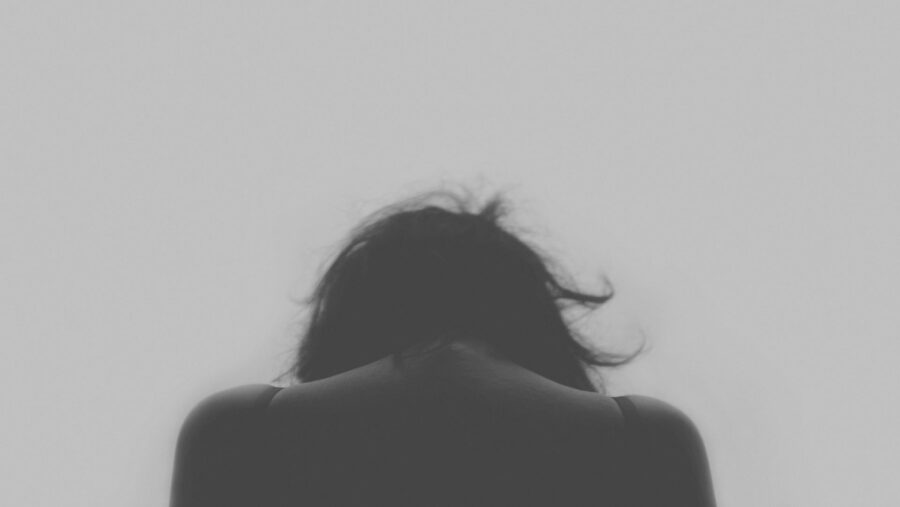How to Grieve
Teaching myself how to deal with the death of my boyfriend
“Would you be sad if I died?”
This was a question my boyfriend would ask me on several occasions. It would usually make me cry at the thought of losing him. Sometimes it made me angry; it felt like he was fishing for attention; other times I would just roll my eyes because I thought of it to be improbable. Of course I would be sad. I would be absolutely devastated.
A year ago I never thought that I would be researching “how to grieve.” This devastation transpired on Nov. 28, 2020 at 7:57 P.M.
He careened off the freeway and rolled 100 yards — the length of a football field. He was pronounced dead at the scene and the passenger died a couple of hours later in the hospital. He was only 30-years-old. He had his whole life ahead of him, we had our whole future ahead of us.
When the call came to me the following day I felt like my entire universe had been torn to shreds:
“Hey Steph, what’s up”.
“I’m sorry to be the one to tell you this babe…”
“C**** died last night”
“What?!”
“You’re lying, no, no, no, no, no…!!!!!”
“I’m so sorry babe…..”
“You’re lying! He’s right there right? Trying to get a rise out of me right?!”
“No, I’m so sorry babe …”
“I have to call you back”
I tried to gain composure but it was drifting quickly. I ran to the bathroom and screamed like a shrieking banshee over and over. I loved him with all my heart. He was the love of my life. He was my best friend. What was I supposed to do now?
The article from the Pasadena news reports called it the most violent crash they had seen. Violent was the word they used. I guess “gory” would leave too much to the reader’s imagination.
The day before his death, he was happily sitting with his family at the Thanksgiving table with his family and friends, laughing and catching up on stories once thought of. It is hard not to think of this dinner as his “Last Supper.” I never thought I would lose him; so early at least.
2020 was a year of loss and mourning due to COVID-19. What I have come to understand from the tragic event of losing not only my boyfriend, but also my niece 22 days prior; a story to tell alone, was that the conditions created by the pandemic was a minefield of dangerous pitfalls like depression and isolation; it consumed the best of us in an unholy rapture.
I live in Covina, California; a suburb in Los Angeles County. We were the mecca of this blossoming virus. My boyfriend was a social butterfly (I still hate talking about him in the past tense. It is still strange to me). He was someone who would reliably seek happiness in travel, cuisine and new experiences.
He had friends from all walks of life. He had created different circles that all seemed to revolve around him. People were drawn to him for his charm and charisma. He seemed to relate to everyone but at the same time remaining a mystery of some sort. When walking into a party, and this is no exaggeration, it was as if its patrons were waiting for his arrival. He was a star.
When California made plans for a complete and total shutdown, he began to suffer from depression due to his isolation. To fulfill his urge for excitement, he turned to several vices; cocaine and alcohol being his drugs of choice. There was no discourse when it came to one or the other. He began to act erratic. I noticed that his decision making was not where it used to be.
He was a scholar; he earned a Master’s degree in Mechanical Engineering and a Bachelor’s in Aerospace. Someone that valued being an intellectual. A prodigy. He shot for the stars and that is exactly where he ended up.
I told him several times, “you are going to lose everything that you worked for!” He didn’t seem to care. He wanted to live recklessly and I didn’t understand why. He seemed to think himself invincible to harm.
Everyone says that I was lucky to not have been that passenger. I don’t feel that way. I feel guilty for not helping him; not being with him in his greatest time of need. He died and I wasn’t there. Why do I get to stay?
The nights have been hard. I have had to resort to calling crisis counselors in the early mornings to calm myself down. It helps. Talking it out with my family, friends or a professional therapist helps. but I still need help getting out of bed in the morning.
Since the news of this death, panic attacks, severe anxiety and massive depressions have now become as normal in my early mornings as coffee once was. No more. I made a conscious decision that I was not going to allow the grief to wash away my days. It was not going to haunt my nights. It would no longer consume my mornings. It was not going to swallow me.
The grieving process for each individual is a lonely and solitary experience. What works for one might not work for the other, but I can tell you how I am beginning to start my mornings again.
- If you wake up having a panic attack, practice breathing techniques. According to 3 Powerful Breathing Techniques to Conquer Anxiety And Panic Attacks (healthcoachdrew.com), it is important to practice breathing techniques before having an anxiety or panic attack. Breath deep and slow to try and regain control.
2. Smile. Smiling creates endorphins .The Real Health Benefits of Smiling and Laughing | SCL Health says, “when you smile, your brain releases tiny molecules called neuropeptides to help fight off stress.” It also helps create hormones that fight depression and lower anxiety, which can help us recover more easily from stress. These hormones, like serotonin and dopamine, are sometimes just what we need to nudge us out of a slump in the mornings. There have been times when I am smiling like a crazy person through the tears in my bed. I sometimes picture what I look like. I might look crazy but it helps.
3. Once you are able to lift your back off the mattress, stretch in bed. I like to pull my arms above my head, move side to side while on my knees, reaching as high as I can. I then lean forward, hands still above my head but planting my face into the sheets. According to The American Brain Society, chronic stress is called the “silent killer”. Persistent stress can lead to serious and dangerous outcomes: irregularity in blood flow which results in oxygen and nutrient deprivation.
4. Keep a positive mindset. This is probably the most important one to me. What helps me is when I wake up, I make it a point to tell myself that it is going to be a good day even if it ends up being another shitty one. That way it feels like there’s a light at the end of the tunnel. Just even trying to think positively in such grief has allowed me to manifest the beginning of my healing and has pushed away many of the suicidal thoughts that I began to have.
5. After you have calmed your nerves, plant one foot after another on the floor, take a deep breath and rise. You have a life to live.
My loss is something that no one that I know has had to go through. The loss of a significant other at such a young age doesn’t make sense. The pain of the dead is felt by the living and I’m truly understanding that now, but it’s going to be okay. You’ve got this.
NOTE: If you or someone you know is dealing with suicidal thoughts, please call the National Suicide Prevention Hotline at 1–800–273–8255.

Megan Cansino is the Editor in Chief of Substance Magazine and is a journalism major who plans to transfer to a four-year university and scour the world...







